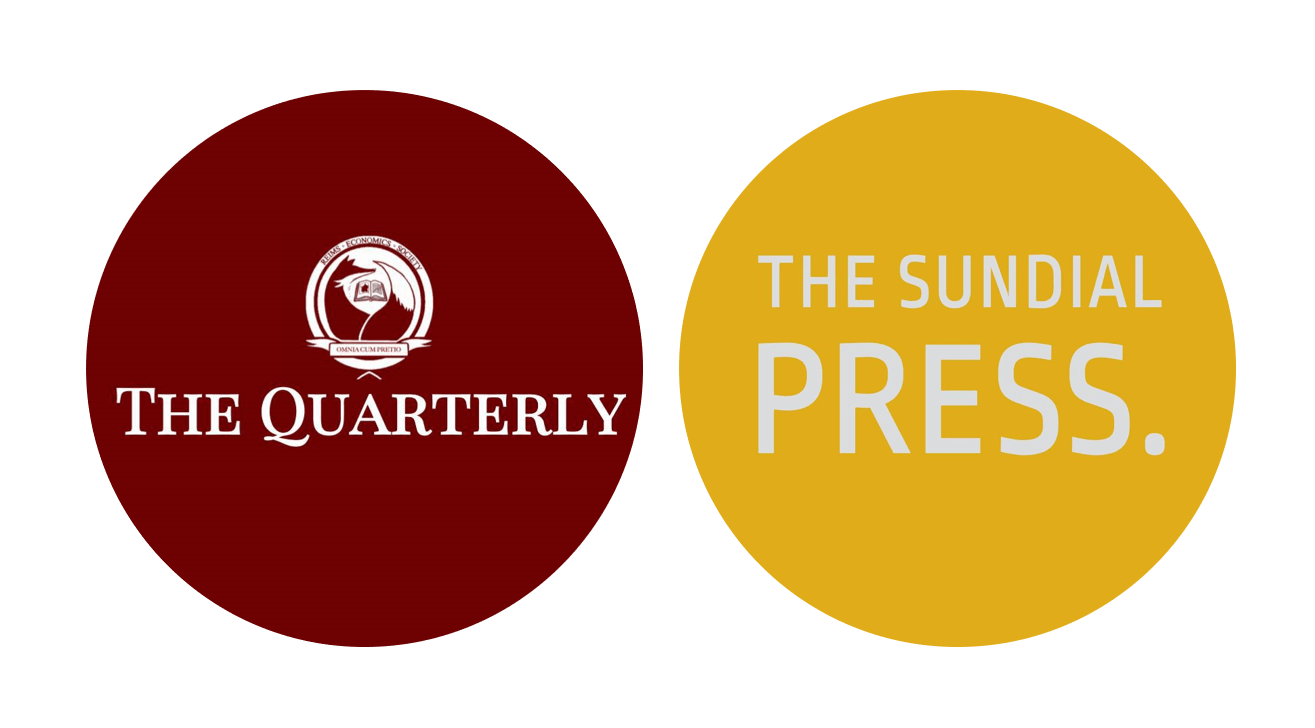
By Jurek Wille
This interview has been edited for clarity and brevity. It is part of a series of interviews conducted for Campaign Week to inform students about their choices and power in deciding who will take over next year’s permanent bureaus. Victor Podvalny is the president of the Economics Society, as well as the editor-in-chief of the on-campus economic student magazine “The Quarterly.” His latest article, Hot Air Promises: A History of Campaign Week Vows analyzes student opinion about the work of last year’s bureaus, painting a grim picture of lists preaching water and drinking champagne.
Q: Why did you choose to write an article about last year´s campaign week?
Victor PODVALNY: We see that a lot of smaller, not yet officially recognized associations jumping through the necessary hoops of getting financial support are hindered by French bureaucracy. Most of the loans they receive are conditional and tied to a particular expressed initiative, and cannot be used for anything but the performance of this project. Permanent bureaus, on the other hand, are only loosely bound to normative promises and campus expectations—any other promises they make during campaign week are essentially overhead. While the expansive budget they receive is in a way tied to traditions, such as a surf trip or galas, they are nonetheless given fiduciary and budgetary legroom that other smaller organizations have not and likely will not see for a number of years until they too can enter the “permanent bureau” pantheon.
At the moment, it’s entirely up to the bureau whether they want to stay true to their campaign promises once they enter into office. That’s why it’s important for papers, maybe even the school administration, to hold them accountable, to force their books open and show us where the student budget went this year if not towards keeping the promises. The Quarterly’s article is a part of this picture in the sense that is a first step towards checking if they lived up to the campaign promises that students voted them in for.
Q: What were the conclusions of your article?
Editor’s note: A full explanation of the applied methodology and detailed results can be found in the original article that is linked in the description above.
Victor: In creating the poll itself, we went through all the lists’ promises, as detailed through their “comm,” including everything we believed to be a promise, as we did not want them to come up in arms at us for either not including or omitting anything. We looked at all the lists and created a survey for students to respond whether or not they felt each promise was kept, and to which degree. The number of promises made differed for each list, skewing the data in favor of lists who made more numerous and qualitative than quantitative promises, as it is more difficult for students to argue that, for instance, a list was not transparent or did not value diversity in its recruiting process, than whether or not it delivered upon some material promise.
This rang especially true for Kick-AS, as most of their 21-promise docket was substantive and involved them producing something visible. It was easy for poll respondents to unequivocally answer “no” or “not sure” to a lot of the promises they made, but more difficult when the promise did not directly affect the student body.
On the flip-side, AirBDE helped itself massively by only making ten promises, one of them being the app, which, if we could have taken the liberty to weight the promises of each list, we would have weighted at 50%, given that all other promises revolved around it in one way or another. Changing the success score algorithm in this way would drop their score down to something to the tune of 26%. However, according to survey respondents, they did well on transparency, mental health and integrating exchange students, helping their score northwards.
I definitely think there is a correlation between how realistic promises are and the score a list received in our analysis, because, naturally, lists came through on the more realistic ones. In this sense, the Quarterly’s scores are a good measure of how true lists stayed to what they promised students.That is not to say that lists aren’t allowed to “dream big,” but they should know that if they built their campaign around some keystone promise, then they’ll be held accountable for delivering on it at the end of the year.
In the end, it’s the small stuff that matters to students because that’s most visible. It’s difficult to pin down transparency or recruiting diversity, but if you are out in the hallway with an organic basket, people notice that.
Of course, one critique to our analysis could be that lists feel treated unfairly by our numbers because students did not acknowledge their work, for example by choosing “somewhat” on a promise that they did in fact deliver on. Still, we think that it is the list’s responsibility to make sure that their service or event is visible and that students notice it, more so than it is a failure of the student to take notice of what the bureau claims to have come through on.
At the end of the day, these promises cannot exist in a blackbox. They are there for students, so students must be on the receiving end.
Q: Can you categorize promises to enable voters to make better decisions about the sincerity of lists?
Victor: First of all, there is the realistic vs unrealistic. The unrealistic is often related to expensive, time-consuming and digital undertakings, such as the AirBDE app that was supposed to centralize everything from student events to mental health resources last year. Also, no bureau actually maintained a regularly updated website throughout the year, though some definitely promised it.
Another possible category would be the material and the immaterial. As mentioned before, the former is more noticeable than the latter; promises that revolve around diversity or other such immeasurables require a significant amount of window-dressing for students on campus to notice them, meaning that students cannot hold lists accountable. Making a plan for the renewal of the student lounge is such an example. At best, you will have a blueprint pop up at some point on your Facebook newsfeed.
To be fair to the bureau members, there are only 14 of them. There is only so much that one or a group of them can take on, especially when considering academic responsibilities that befall all of us and extraneous work on aforementioned events that do not fall under the original set of promises. I think they are being, one, unrealistic to the student body, but second, also to themselves.
Q: Will the online campaign week result in different outcomes than last year in regard to how students vote?
Victor: If we suppose that digital communication such as videos, editing skills, and visibility will have a bigger influence on students’ votes since there will not be any free food, grocery shopping or other favors anymore, then that might put more student focus on the communication of what lists intend to do over the coming year rather than what they’ll provide this week.
In a way, it eliminates the gig economy that served as the lifeblood of Campaign Week in years past. There are no more market failures allowing lists to buy a vote, as list members will no longer have an opportunity to swing your vote by showing up at your door at 2 AM to give you a crepe or a massage. It will be much more substantive and the emphasis will shift towards the promises lists make. Last year, you could hide behind fruit salads, daily breakfast on campus, and FIFA, which incontestably swayed votes—mine included in truth. This year, people will be inclined to pay more attention to what lists say and how they say it, and not what they do for a week or two. In my opinion, this is a change for the better.
This will be a trial period of sorts for the lists elected. Our interactions with these bureaus over the course of the school year are mostly via social media, so this will give lists a taste of what will be expected digitally of them for the next academic year.
Q: Do you think that your article will influence the work of future lists?
Victor: The purpose of our article was not to select a “winner” of the bureaus. Instead, we tried to measure which campaign stayed true to its promises. If any upcoming list reconsiders their promises to make their campaign more realistic based on the article, then we as a paper believe that we’ve pushed the campaign week a little closer to providing resources to projects that students not only want to see but which they’ll also see realised.
But plainly speaking, we’ve found that lists care about the article, or, at the very least, the data communicated therein. For them, it serves as a gauge of how the rest of the campus feels they’ve done in their one year at the helm, and although, in reality, our poll’s results don’t really answer that question, we’d urge media to take a more active role in checking and balancing what lists get up to from September to May.
At the moment, there is no way for students to really hold bureaus accountable except if The Sundial Press or The Quarterly puts focus on them, something I feel both papers should do more often. It is also for that reason that it is unfortunate that papers are barred to write about the campaigns throughout the week without sending articles to the campaign committee to read through first. We tried to change that this year, but narrowly lost the vote during the assembly of the campaign week earlier in the year. Hopefully, next year, this will change.
It is also unfortunate that not much is published throughout the year with regard to the lists’ work. We wanted to address that. Our campus magazines are very outward-looking, but what people are most interested in is what affects them in their quotidian life. I think that is why our article gained a good amount of traction.
Q: Should the Sundial Press and The Quarterly hold bureaus and administration more often accountable?
Victor: I think both The Quarterly and The Sundial Press have a bigger role to play with regard to campus life, especially the bureaus and administration. Holding them accountable is what we [The Quarterly and The Sundial Press] are there for. We are not yet experts on the outside world, but we are eye-witnesses for what is happening around us, putting us in a prime position to comment on it.
To do some lobbying here: I think it is a shame that Sciences Po is not allocating any fixed amount of money to newspapers on the different campuses in the way that they are giving it to permanent bureaus. In my personal opinion, a campus newspaper like The Sundial Press that ensures students know what is going on is equally valuable to any of the bureaus. I think it is the administration’s responsibility to improve the quality of information on campus. In that sense, it is also a question of why we are not competing fairly for student resources.
I understand that our bureau system is something specific to Sciences Po. At the same time, if you look at other universities, their student newspapers are what they are most proud of, be it the Columbia Spectator or the Crimson. I find it strange that Sciences Po, as a political school, does not have a newspaper to support it. That is partly due to the administration’s budget allocation.
This might be very controversial at Sciences Po, but it would be interesting to have students determine where their budget goes. The path to becoming a permanent bureau is very long and bureaucratic, so giving the students the power to decide their own preferences would sidestep that in a way. Students should be able to decide how many AS trips they want to have bankrolled and whether or not they want some other student service or rather spend the money on a bi-weekly gazette.
Q: What would be a good campaign promise-making strategy?
Victor: Less is more. Moreso, in this campaign, they should worry more about punchy graphics than punchy numbers. It is very unrealistic to have “ten commandments,” so to speak, because historically, lists have found it impossible to juggle anything north of five, understandably so.
Therefore, if you have four good promises that you will fulfill and go for a fifth, you will be remembered as a really great bureau compared to the ones promised a lot but achieved little.
It truly is about setting expectations. The bar has been set artificially high—year in year out “promise-inflation” if you like. In the past, speaking from experience, it was frankly too much. People gave massages at 3am to get someone’s vote. A list at some point must be brave enough to depart from tradition and propose something different.
Lastly, I think to some, the Quarterly’s article and this interview can sound like we are pointing fingers, saying that people are not taking it seriously. But that is not at all what we are doing. As a paper, we’re only reminding people that there is a lot of money, privileges and on-campus power involved in these things. It’s great fun for a week, but, when it comes to what happens to resources relative to what students were promised would happen, there should be some form of responsibility extending beyond the week. Students should keep that in mind.
Other posts that may interest you:
- The Trouble with ‘Ecocide’
- Carbon dioxide removal – hit or miss?
- Local Victories for Turkish Opposition — A Sign of Hope?
- Are France and Japan a Mismatch Made in Heaven?
- A Reflection on Dark Tourism
Discover more from The Sundial Press
Subscribe to get the latest posts sent to your email.





